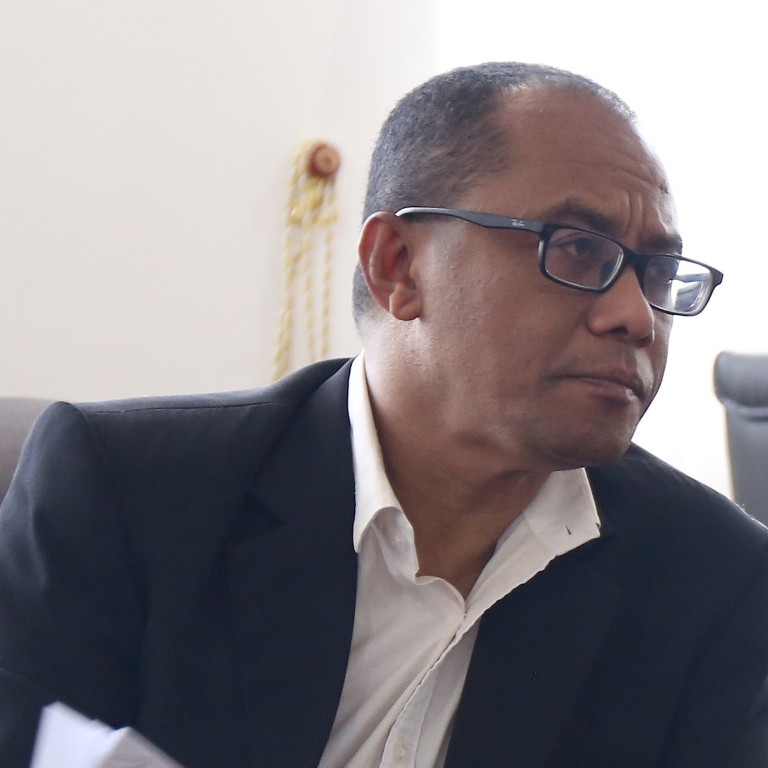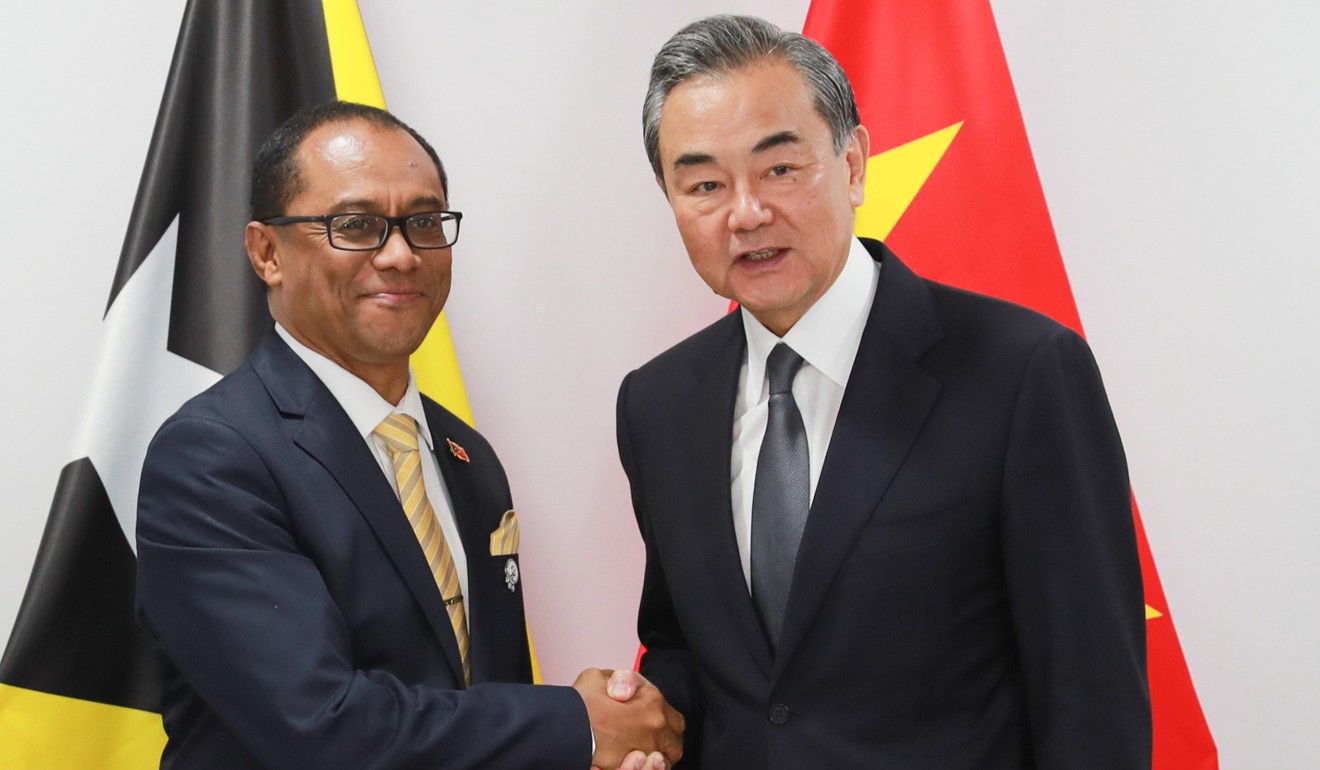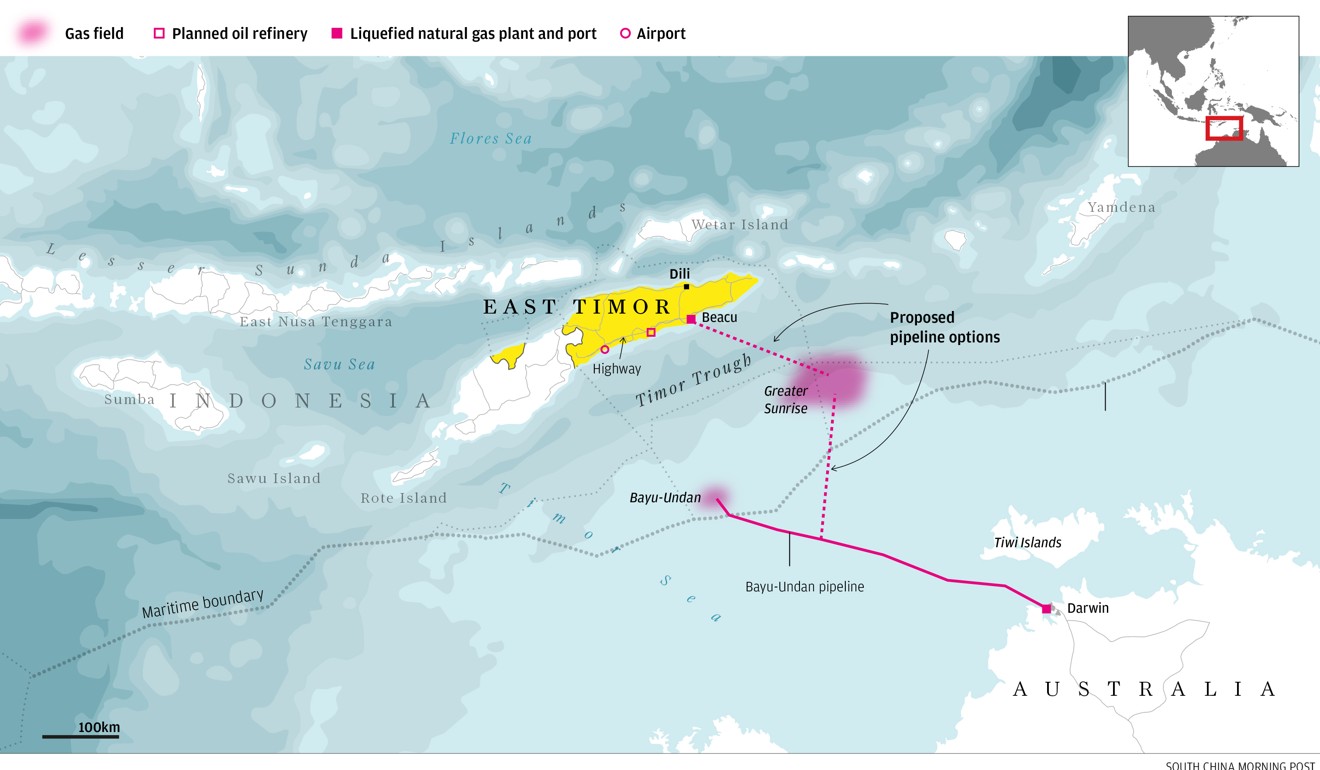
US$16 billion ‘hoax’: reports of Chinese loan for East Timor gas project were politically motivated, says foreign minister
- East Timor is looking for international partners to finance its Greater Sunrise gas project, tapping some of the country’s last remaining resources
- Foreign ministers from both countries have been talking about cooperating in the petrochemical industry
East Timor wants to cooperate with China in the oil and gas industry, but reports that Dili would borrow US$16 billion from China’s Export-Import Bank to finance one such project were a “hoax”, the country’s Foreign Minister Dionísio da Costa Babo Soares declared.
East Timor’s China friendship won’t compromise national interest: minister
The country is also considering other partners, he said on Monday in an exclusive interview with This Week in Asia.
“Timor-Leste is calculating the different values presented in the market and will make the decision about our partners without jeopardising our own economy,” he said.

The government’s plan for the project includes an undersea pipeline to the island’s south coast, which it hopes to turn into a petroleum processing hub.
Multinational fuel companies Shell and ConocoPhillips recently sold their stakes in the project back to East Timor’s state fuel company Timor Gap partly due to the government’s unwillingness to compromise on building the pipeline across the undersea Timor Trench, rather sending the gas through existing pipelines headed for Darwin.
Chinese cash: enough to keep East Timor out of Asean?
Wang said Beijing is ready to draw up plans with Dili on cooperation under the Belt and Road Initiative and that China supported East Timor in playing a bigger role in regional and international affairs, including joining the Association of Southeast Asian Nations (Asean).

Soares said oil and gas is one of the key areas of collaboration under discussion between the two nations – along with agriculture, tourism and trade.
However, China was not the only partner East Timor had explored cooperating on the petrochemical industry with.
“We are looking at different options, different companies from different countries. Not only in China, but also in Australia, the US, Europe and Asia,” said Soares.
Revenue from existing oil and gas projects currently funds nearly 90 per cent of East Timor’s economy and has dwindled from more than US$3.5 billion in 2012 to under US$500 million in 2017.
Local NGO La’o Hamutuk has warned the nation needs to diversify away from fossil fuel revenues to sustainable sources of economic growth.
East Timor wants to tap oil and gas near Australia, so why is it courting China?
Timor Gap in April signed a US$943 million contract with state-owned China Civil Engineering Construction, a unit of China Railway Construction, for a liquefied natural gas plant at Beaço, part of a network of petroleum processing infrastructure planned for East Timor’s south coast.
Soares said the nation was now in “intense discussion” with the Chinese about the new infrastructure.
At the centre of East Timor’s foreign policy are domestic concerns, said Soares.
“Any relation we have with our neighbours or any other countries, we place national priorities at the heart of these relations – which means any cooperation we have with such countries will be based on our priorities and serve the interest of the Timorese people.”


